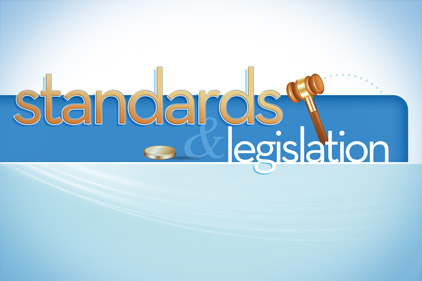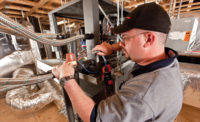The 25C tax credits have been a popular sales tool for residential HVAC contractors since their introduction in 2006. Late last year, Congress extended the credits through 2011, and now many in the industry are wondering if Congress will extend the credits again for 2012.
While the original tax credit incentive made up to $500 available for eligible homeowners who made qualified upgrades to their homes’ energy efficiency, the incentive was modified to remove individual appliance caps, remove a lifetime cap on claims, and increased to up to $1,500 beginning in February 2009 and extending through 2010. In December 2010, Congress considered extending 25C for another year and ultimately did so, but changed the value of the credit. For 2011, Congress reduced the credit to up to $500, reinstated the individual limits for the qualifying types of equipment, and reinstated the lifetime cap. By reinstating the lifetime cap, any household that had claimed up to $500 in 25C credits since 2006 was ineligible to use it again.
While the reduced tax credits offered to homeowners in 2011 have not been as beneficial for the industry, many believe that offering some incentive is better than none at all.
Since the 2011 credit is slated to expire at the end of this month, industry organizations have been lobbying Congress to extend the credit through 2012. The extension faces an uphill battle because of the cost-cutting mood in Washington, D.C., but legislation is currently being drafted that would include 25C as part of a larger tax extenders package.
Incentive Amounts
Charlie McCrudden, vice president of government relations for the Air Conditioning Contractors of America (ACCA), noted that the lowered amount of the 2011 credit hasn’t had nearly as much of an effect on the industry as the earlier version of the credit. Plus, he noted, the extension for 2011 occurred less than two weeks before the start of the year, and that made it harder on contractors to market and educate customers about the credit.
David Dombrowski, manager of ARS Raleigh/Durham in North Carolina, described the different effects of the varying levels of the 25C credits on his business. “The tax credit of 2010 accelerated purchases into the last quarter of 2010. Fifteen hundred dollars is significant in terms of making a buying decision,” he said. “Although $500 is better than nothing, the issues of reduced credit opportunities and concern about the economy are a larger factor than the possibility of $500 returns. We may get a slight bump now, but it is nothing like last year.”
Russ Donnici, president of Mechanical Air Service Inc. in San Jose, Calif., agreed that the 2011 credit level has not been as beneficial. “The credits are helpful in closing a sale and improving the projected ROI, but the reduction to $500 hasn’t been helpful,” he said. “At $1,500, the credit for someone in a 30 percent tax bracket would have the same benefit as writing off about $4,500 of the cost of the work.”
Last year, many in the HVAC distribution chain reported that the 2009-2010 credit encouraged more sales of higher-end equipment. According to Donnici, “It’s always easier to sell an upgrade with the higher tax credit. The credit is helpful when a repair or replacement is needed, since it’s a small incentive to select a higher efficiency unit or system when they need the work anyway.”
Dombrowski simply stated that the lower $500 credit “does not justify the increased investment” for a higher efficiency model. However, he continued, “People should buy systems not based on SEER but on proper design and comfort. The 2010 tax program created a nightmare of mismatched systems, which put oversized evaporator coils with no chance to properly dehumidify homes. Just because there is an ARI rating does not mean it works in all areas of the country.”
Overall, Dombrowski said, there will only be a minor impact on his business if the credit is extended at the $500 level in 2012. “But everything is appreciated,” he added.
Sharing this sentiment, Donnici said, “I think an extension of the $500 credit would have little additional benefit than it has now; however, any credit is better than none.” He added that he would prefer to see the credits reinstated to the $1,500 level.
ACCA, Heating, Airconditioning, and Refrigeration Distributors International (HARDI), and the Air-Conditioning, Heating, and Refrigeration Institute (AHRI) all support increasing the value of the tax credit. McCrudden noted that in addition to pushing for a 2012 extension and an increase in the tax credit value, ACCA is also lobbying for changing the parameters of the credit so that taxpayers can claim more. He pointed to IRS data from 2009, when a taxpayer could claim up to $1,500, showing that more than $25.1 billion in expenditures was reported by homeowners in claiming a 25C tax credit, and of that amount, $8.9 billion was spent on HVAC and hot water appliances.
Lifetime Caps
For 2011, Congress reinstated the lifetime cap on the amount homeowners could claim through the 25C credit. The cap was set at $500 and dated back to January 2006. Any homeowner who had claimed the 25C tax credit since 2006 became ineligible to claim the credit in 2011 for any qualifying upgrade up to or over $500.
Many in the industry believe the cap must be lifted for the credit to be beneficial in 2012. According to Dave Calabrese, senior vice president of policy for AHRI, the lifetime cap is an issue because it limits the people who can take advantage of the credit. “When you extend the credit and don’t remove the cap, you’re limiting the universe of people who can use it,” he said, noting that AHRI supports removing the cap.
The cap also makes it more difficult to determine who is eligible for the credit. “This is too confusing for homeowners and impossible for contractors. No one can keep track of this lifetime cap option,” Dombrowski said.
From a personal perspective, Donnici added, “I think the lifetime cap is ridiculous if the intent is to get higher-efficiency equipment installed to save energy. I used the $1,500 credit when I retrofitted my home with radiant heat and a 97 percent boiler. I would do more upgrades if the incentives were there.”
Gauging the Mood on Capitol Hill
According to Jon Melchi, manager of government affairs for HARDI, there is a 50/50 chance that the 25C tax credits will be extended through 2012. “The good news is [25C is] on the books already. That gives you an advantage. Certainly no new tax credits are going to be thrown on the books,” he said. “We’re trying to communicate to folks — especially Republicans on the House side — how effective the credit has been.”
Dave Calabrese, senior vice president of policy for AHRI, also noted that the current mood on Capitol Hill will affect how seriously Congress considers extending the 25C credits. “It’s going to be difficult, and not necessarily because anybody has any strong feelings against the 25C credits,” he said. “You’re looking at an environment where cutting the budget is at the top of the list. Anything like this that costs money is going to be looked at very carefully.”
McCrudden noted that 25C is just one of more than 65 tax incentives expiring at the end of the year. “The same question will be asked of all the tax credits that are expiring: ‘Is this tax credit worth it?’” In order to prove that 25C is a worthwhile credit, McCrudden said the industry will need to show strong support for 25C.
He also said that the industry coalition lobbying for the credit has been working for months to try to get the tax credit extended earlier and provide certainty about what will be available in 2012. Calabrese noted that this coalition includes not only HVAC manufacturers, contractors, and distributors but also homebuilders.
“We wanted to do it earlier, but this is a repeat of what happens every time,” McCrudden said. “We do this dance every year because Congress puts it off.”
While there are many factors that may ultimately play into whether Congress extends the credit, Melchi noted 25C could be lumped in with other end-of-year tax fixes, including the Alternative Minimum Tax (AMT) patch. He added that Congress may postpone action on 25C until January and make an extension retroactive.
McCrudden agreed that it is likely Congress will consider tax extender legislation that includes 25C after the holiday recess. However, he noted that the House and Senate will not have many voting days in January, and the longer that they delay passing the tax extender, the harder it will be for businesses to take advantage of it.
Publication date: 12/19/2011







